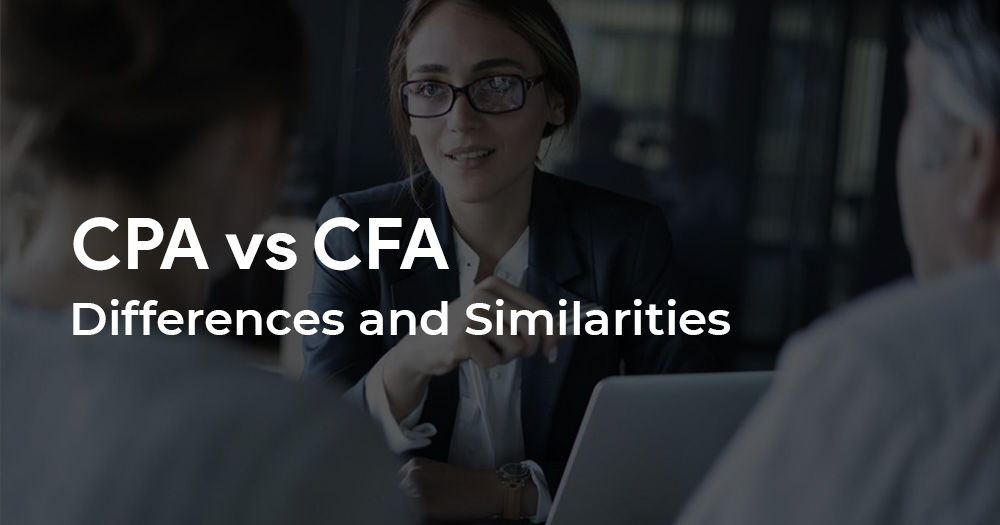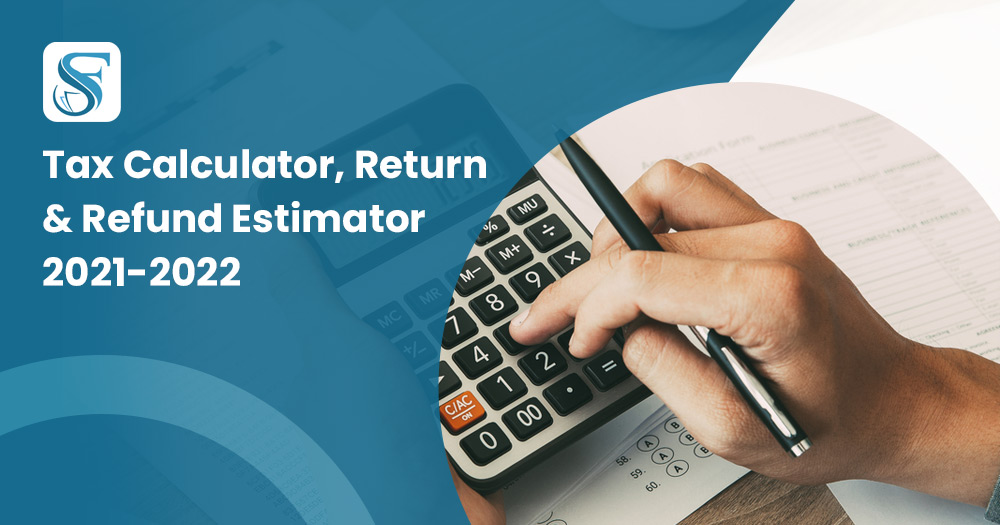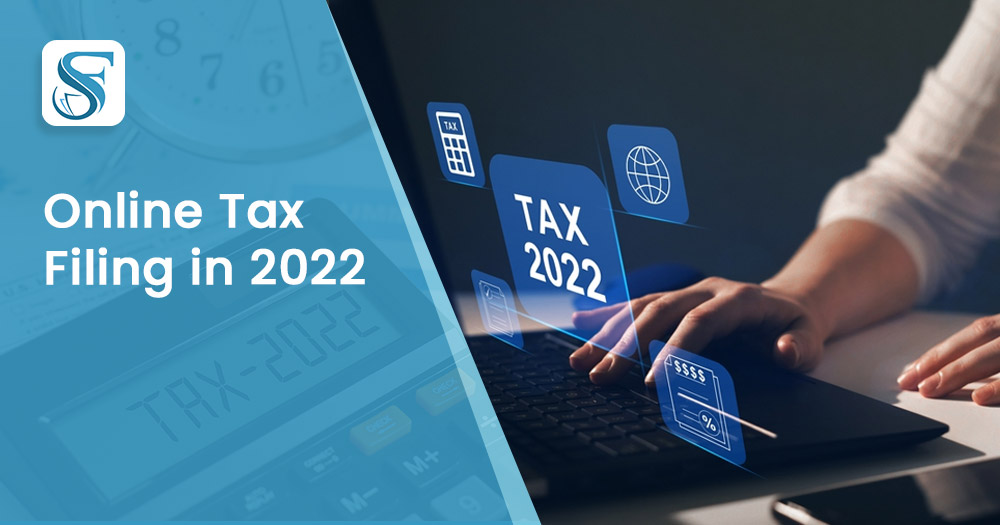There’s a lot to enjoy about the possibility of a career in accounting. It’s a steady industry with a lot of money to be made. When you combine it with a job that allows you to use your math and problem-solving talents, it’s simple to understand why you’d be interested in differences and similarities between CPA(Certified Public Accountant) vs CFA(Charted Financial Analyst).
However, determining whether or not to pursue an accounting degree isn’t the only major decision you’ll have to make—you’ll also have to decide which accountancy certification or credential to seek.
Many financial experts who want to enhance their professions obtain industry-recognized qualifications and licenses. The CPA vs CFA is some of the most well-known certifications in finance and accounting. Your certified tax professionals will be determined by whether you seek a CPA or a CFA. Both occupations may be satisfying, but each has its own set of benefits and drawbacks. We’ll see CPA vs. CFA credentials in this article to help you pick the ideal one for your attitude and talents.
The CFA and CPA designations cannot be compared since they reflect certifications in two separate sub-sectors within the overall accounting and finance industry. CPA is for accounting, and CFA is for finance.
CPA vs CFA: Overview
A certified public accountant (CPA) is an individual who has passed the American Institute of Certified Public Accountants’ Universal Examination and has met their province’s standards for inclusion in the institute’s ranks. Initially intended for public accountants, the CPA credential is now sought by non-public accounting professionals, American tax professionals, and financial professionals who want to demonstrate their proficiency in mathematical calculations. A CPA license holder also has the legal authority to sign audit reports, which distinguishes the title.
A chartered financial analyst (CFA) has completed the CFA Institute’s curriculum requirements. CFA is the holy grail in finance and investment, on the other hand. This is the most significant credential you can earn if you want to work as an equities researcher, a financial adviser, or a specialist in wealth management or investment bank firms. This entails earning a bachelor’s degree, passing three six-hour exams, and accumulating the required experience (now four years) in the investing field. People holding these titles must follow tight rules of ethics and adhere to high ethical and integrity requirements.
CPA vs CFA: Qualifications
What is a CPA?
Each one of the 55 states or jurisdictions in the United States issues a License to practice. There is no single administrative agency, and each province’s CPA test and licensure criteria are subtly different. Professional experience criteria for CPAs, for example, differ by jurisdiction.
Among all financial planning and analysis qualifications, the CPA criteria are the hardest to fulfill. To appear for the test, individuals must have a four-year bachelor’s degree and, in most circumstances, 150 credit hours (equal to five years of higher education). In addition, non-US individuals find it challenging to take the examination due to the high entry barrier and lengthy application procedure.
Read more about How To Hire a CPA?
What is a CFA?
CFA is a designation awarded by the CFA Institute, a non-profit organization based in New York City. The institution is headquartered in the United States, although it has three field headquarters and 200 national organizations worldwide. Candidates apply via the institute, and the process is relatively straightforward. The applicant can sit for the test if they have a bachelor’s degree or four years of nearly any type of job experience. Even before graduation, the individual can take the test.
CPA and CFA: Similarities
Job Outlook
Both titles are regarded as the pinnacle of achievement in their respective disciplines.
A CFA is the pinnacle of financial and investment education, preparing you for a job in financial services, commercial banking, or economic research.
The CPA credential qualifies you for a management and leadership position in accounting, audits, taxation, or consultancy services. A CPA is needed by law if an accountant files a report with the Securities & Exchange Board.
Career Advancement
Obtaining a Certified Public Accountant (CPA) license or the Chartered Financial Analyst (CFA®) credential, whichever you prefer, will help you progress your career. According to the Wall Street Journal, the percentage of chief financial officers with CPAs at the 1,000 largest U.S. public businesses is around 36%. According to the CFA Institute, just 7% of all CFA charter holders have earned the C-suite.
Salary Hikes
Both titles result in a significant rise in average pay.
- CPAs make 10% more than their non-certified peers on average.
- A CFA qualification may boost your pay by 15% to 20%.
Exam Difficulty
When comparing the CFA and CPA tests, keep in mind that both are among the most demanding professional licensing tests.
- The nationwide pass percentage for the CPA Exam is roughly 50%.
- The average pass rate for each component of the CPA Exam in 2020 was 49.98 percent (FAR) to 65.56 percent (BEC). Pass rates for the CFA test, on the other hand, range from 49 percent for Level I to 56 percent for Level III, according to the most current results available.
This gives the impression that the examinations are of roughly similar difficulty. The pass rates for the CFA test in 2020, on the other hand, are relatively high. CFA pass rates averaged 41 percent for Level I, 44 percent for Level II, and 53 percent for Level III from 2010 to 2019. This suggests that the CFA test has been more challenging in the past. Furthermore, while opinions vary, some people who have taken both believe that a current CPA would have a stricter problem passing the CFA test than the other way around.
CPA vs CFA: Differences
Career Paths
One of the main differences between CPA and CFA are CPAs can pursue a variety of employment choices. CPAs have a wide range of accounting positions to choose from, ranging from independent management consulting to extensive audits. Accounting positions are in high demand in private businesses and semi-government organizations, and government agencies.
The CFA designation can lead to a variety of opportunities in the finance sector. From business or data analysts to economic risk or portfolio managers, there are a variety of positions available. In addition, CFAs are usually regarded for executive functions such as chief investment officer, chief financial officer, or chief executive officer.
| CPA | CFA | |
|---|---|---|
| Career Path | Accountant, Comptroller, Financial Manager, CFO | Investment Analyst, Portfolio Manager, Strategist, Consultant, Wealth Manager |
CPA vs CFA: Salary
CPA Salary
According to Payscale.com statistics from 2020, the average base income for a CPA in the United States is $68,090. 80% of all CPA salaries fall between $49,000 and $114,000 a year. The details will be determined by the cost of living in your location and your professional status. An entry-level CPA, for example, will make roughly $54,000, rising to $71,000 by mid-career and peaking out at approximately $96,000 by late-career.
CFA Salary
A CFA’s average base compensation is $92,432, with a salary range of $52,000 to $153,000. On the other hand, a CFA’s compensation takes longer to reach its peak throughout a career. In the United States, an entry-level CFA may expect to make around $77,000, rising to just $80,000 by mid-career and only $101,000 to $143,000 after 15-20 years in the sector.
| CPA | CFA | |
|---|---|---|
| Average Salary | $180,000 | $70,000 |
CFA vs CPA: Exam Curriculum
The CPA Exam consists of four sections. The four areas are:
- Auditing and Attestation (AUD)
- Financial Accounting and Reporting (FAR)
- Regulation (REG)
- Business Environment and Concepts (BEC)
| CPA | CFA | |
|---|---|---|
| Exam Curriculum | The CPA Exam consists of four sections. The four areas are: 1. Auditing and Attestation (AUD) 2. Financial Accounting and Reporting (FAR) 3. Regulation (REG) 4. Business Environment and Concepts (BEC) |
The CFA Exam Level has a total of 240 multiple-choice questions. Test questions cover ten different sections. These are: Ethical and Professional Standards 1. Quantitative Methods 2. Economics 3. Financial Reporting and Analysis 4. Corporate Finance 5. Equity Investments 6. Fixed Income 7. Derivative Investments 8. Alternative Investments |
The CFA Exam Level I has a total of 240 multiple-choice questions. Test questions cover ten different sections. These are:
- Ethical and Professional Standards
- Quantitative Methods
- Economics
- Financial Reporting and Analysis
- Corporate Finance
- Equity Investments
- Fixed Income
- Derivative Investments
- Alternative Investments
CPA vs CFA: Cost for Certification
Membership fees, test prep classes, learning resources, and other charges vary based on which CPA vs CFA review course source you pick and where you live. As a result, the total program fees for the CPA and CFA are vastly different.
- The cost of applying for a CPA is paid to your state board and can range from $10 to $245; however, the average price is $150. The NASBA sets the exam fees, which are $208.40 for each of the four portions. The state board sets the licensing costs, ranging from $50 to $500—fees for the CPA Program range from $1034 to $1,483.
- The CFA Institute charges a $450 registration fee for 60 CFAs. The cost of the exam varies depending on when you register for it. The exam price for early enrollment is $700. The price for the Regular Application is $1,000. There is a $1,450 late registration charge. The entire cost of the CFA program ranges from $2,550 to $4,800.
| CPA | CFA | |
|---|---|---|
| Cost | The cost of applying for a CPA is paid to your state board and can range from $10 to $245; however, the average price is $150. The NASBA sets the exam fees, which are $208.40 for each of the four portions. The state board sets the licensing costs, ranging from $50 to $500—fees for the CPA Program range from $1034 to $1,483. | The CFA Institute charges a $450 registration fee for 60 CFAs. The cost of the exam varies depending on when you register for it. The exam price for early enrollment is $700. The price for the Regular Application is $1,000. There is a $1,450 late registration charge. The entire cost of the CFA program ranges from $2,550 to $4,800. |
Final Words
Finally, whether you pursue a CPA vs CFA is a personal preference in career options.
Do you believe you’d be interested in working in public accounting, management accounting, auditing, or assisting with preparing, evaluating, and confirming financial data? If this is the case, the CPA designation should be your first choice.
Getting a CFA designation would be a much better option if you are more interested in portfolio management, financial analysis, consulting, or someday becoming the CEO of a firm.







I抎 have to test with you here. Which isn’t something I usually do! I enjoy studying a publish that can make individuals think. Additionally, thanks for allowing me to comment!
I’m often to running a blog and i actually appreciate your content. The article has actually peaks my interest. I am going to bookmark your site and keep checking for new information.
Howdy! I just would like to give an enormous thumbs up for the nice information you’ve got here on this post. I shall be coming again to your blog for more soon.
Oh my goodness! an incredible article dude. Thank you Nevertheless I am experiencing subject with ur rss . Don抰 know why Unable to subscribe to it. Is there anyone getting similar rss downside? Anyone who is aware of kindly respond. Thnkx